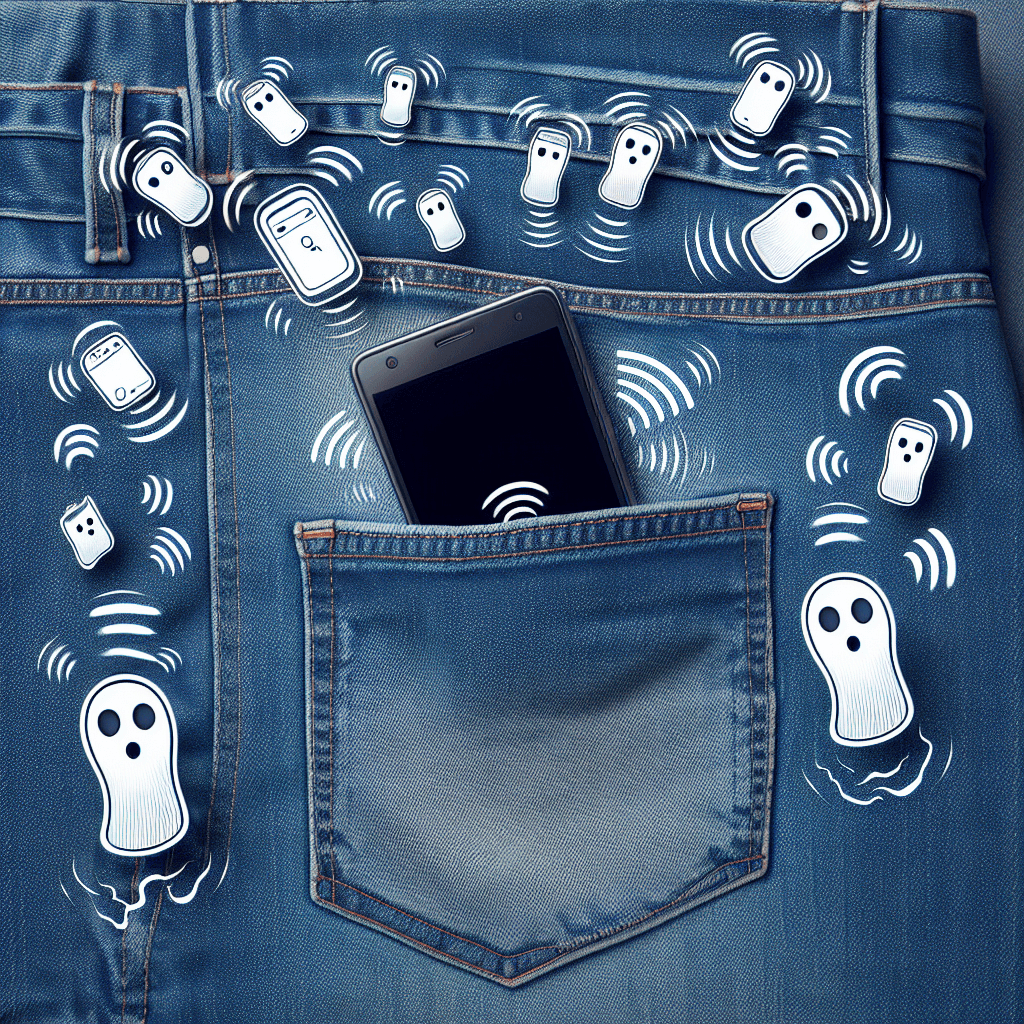The Ghost in Your Pocket: Why We Feel Our Phone Vibrate When It Hasn't
Ever confidently reached for your phone, certain you felt it buzz, only to find nothing? You're not alone; this common experience is known as Phantom Vibration Syndrome.


Too Long; Didn't Read
The feeling that your phone is vibrating when it isn't is a common phenomenon called Phantom Vibration Syndrome (PVS), a psychological quirk of our hyper-connected lives.
The Ghost in Your Pocket: Why Do We Feel Our Phone Vibrate When It Hasn't?
Introduction
Have you ever confidently reached for your phone, absolutely certain you felt it buzz in your pocket or bag, only to find… nothing? No missed call, no new message, just silence. If this sounds familiar, you're far from alone. This common, slightly perplexing experience has a name: Phantom Vibration Syndrome (PVS). While it might seem like a minor modern quirk, understanding why we sometimes feel our phone vibrate when it hasn't offers fascinating insights into how our brains process information in an increasingly connected world. This post delves into the psychological and neurological reasons behind these phantom buzzes.
Main Content
What Exactly is Phantom Vibration Syndrome?
Phantom Vibration Syndrome refers to the perception that one's mobile phone is vibrating when, in reality, it is not. It's not a hallucination in the clinical sense, but rather a misinterpretation of other sensory stimuli or even a product of our own heightened expectations. Research indicates it's incredibly common; studies published in journals like Computers in Human Behavior have found that a vast majority of mobile phone users, sometimes reported as high as 80-90%, have experienced these phantom sensations at least occasionally. It's a tangible side effect of how deeply integrated these devices have become in our daily lives.
The Psychology of Anticipation: Signal Detection Theory
One key explanation lies in a psychological concept called Signal Detection Theory. This theory explores how we make decisions under conditions of uncertainty – specifically, how we distinguish a target signal (like a phone vibration) from background noise (like the rustle of clothing, a muscle twitch, or random sensory input).
- Heightened Expectation: Because we value phone notifications (they might be important calls, messages from loved ones, or work updates), our brains become highly attuned to detecting them. We are essentially primed to notice a vibration.
- Lowered Threshold: This anticipation lowers our threshold for what we interpret as a vibration. Ambiguous sensations that might normally be ignored are mistakenly classified by the brain as the signal we're expecting. Think of it like eagerly waiting for a specific car to arrive – you might mistakenly think every similar-sounding engine noise is the one you're waiting for.
Our constant connection and the associated dopamine hits from notifications train our brains to be on high alert, making us more susceptible to these false alarms.
Neurological Mischief: Sensory Nerves and Brain Predictions
It's not just about psychology; our basic neurology plays a role too.
- Sensory Input: The nerves in our skin are constantly sending signals to the brain about pressure, movement, and texture. Small, insignificant movements – fabric shifting, a slight muscle spasm, even the pressure of the phone itself resting against the body – can generate neural signals.
- Brain's Interpretation: Normally, the brain filters out this low-level "noise." However, due to the conditioning mentioned earlier (associating pocket sensations with important alerts), the brain regions responsible for processing touch and vibration might occasionally misinterpret these faint signals. According to predictive coding models of brain function, our brain constantly generates predictions about incoming sensory information. When we anticipate a vibration, the brain might 'fill in the blanks' and interpret ambiguous signals according to that prediction, leading to the phantom sensation.
Is Phantom Vibration Syndrome Harmful?
For the vast majority of people, PVS is a harmless perceptual quirk. It's often more of an amusing annoyance or a reminder of our reliance on technology than a serious problem. However, some researchers suggest that experiencing frequent phantom vibrations could potentially be linked to higher levels of stress or psychological dependency on mobile devices. If the sensations are causing significant anxiety or distress, it might be worth examining one's relationship with their phone and notification settings. Reducing notification frequency or occasionally carrying the phone differently (e.g., in a bag instead of a pocket) can sometimes lessen the occurrence.
Conclusion
Feeling a phantom phone vibration is a widespread phenomenon rooted in a combination of psychological expectation and neurological interpretation. Our brains, conditioned by the importance we place on digital notifications and operating under signal detection principles, sometimes misinterpret ambiguous physical sensations as the familiar buzz of our device. While generally harmless, it serves as a fascinating example of how technology actively shapes our perception and interaction with the world around us. So, the next time you feel that ghost buzz, remember it's likely just your brain being a little too eager to keep you connected.


